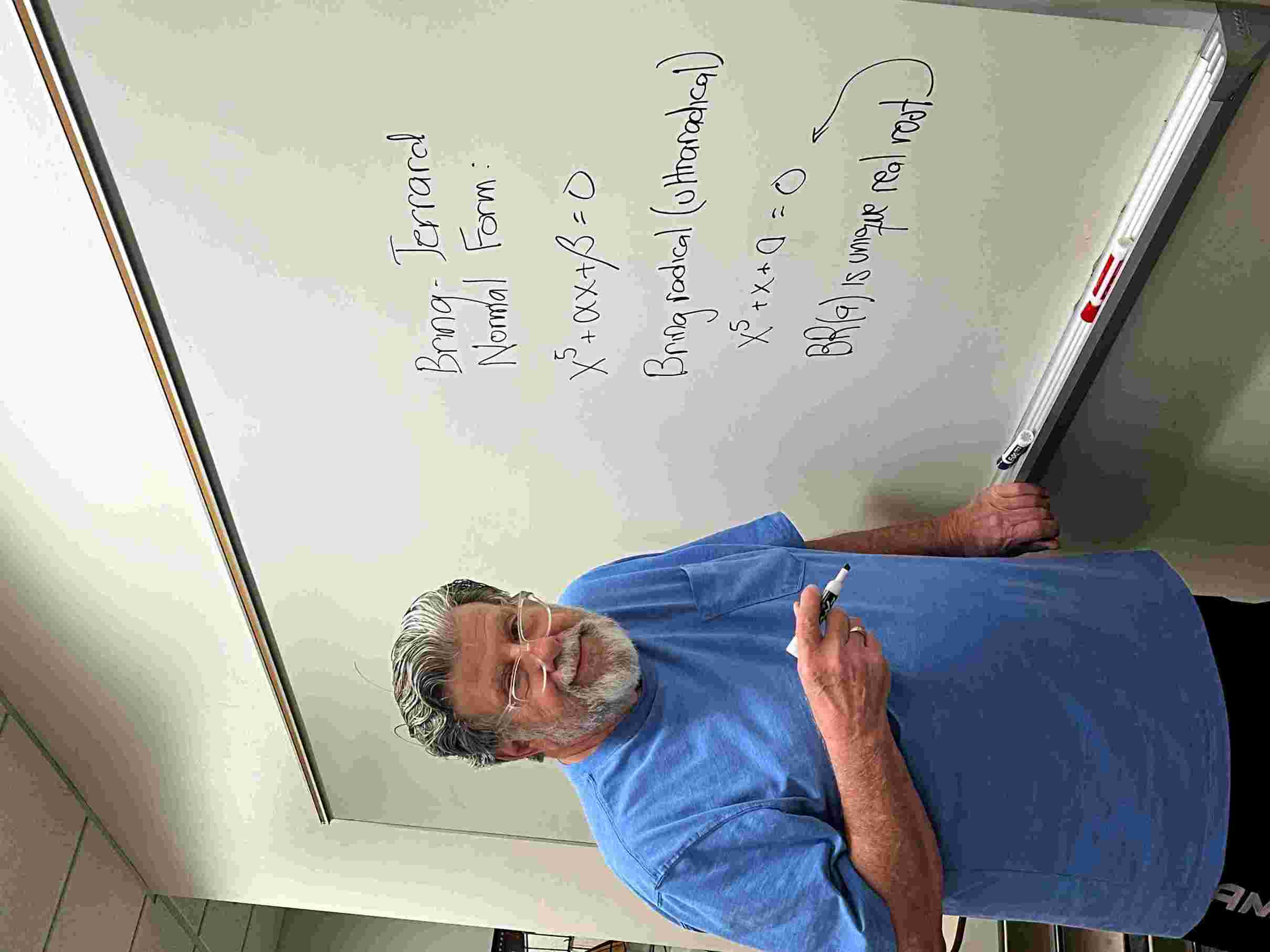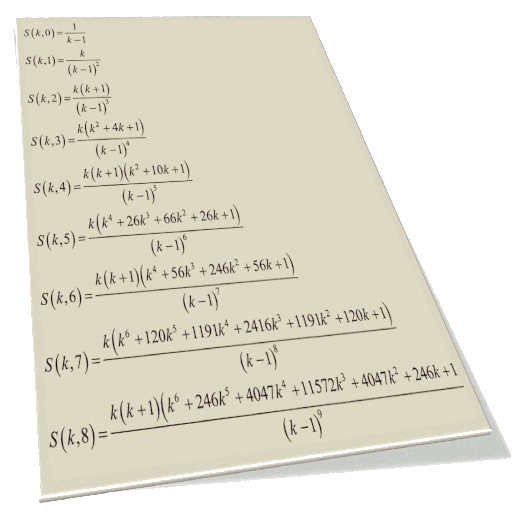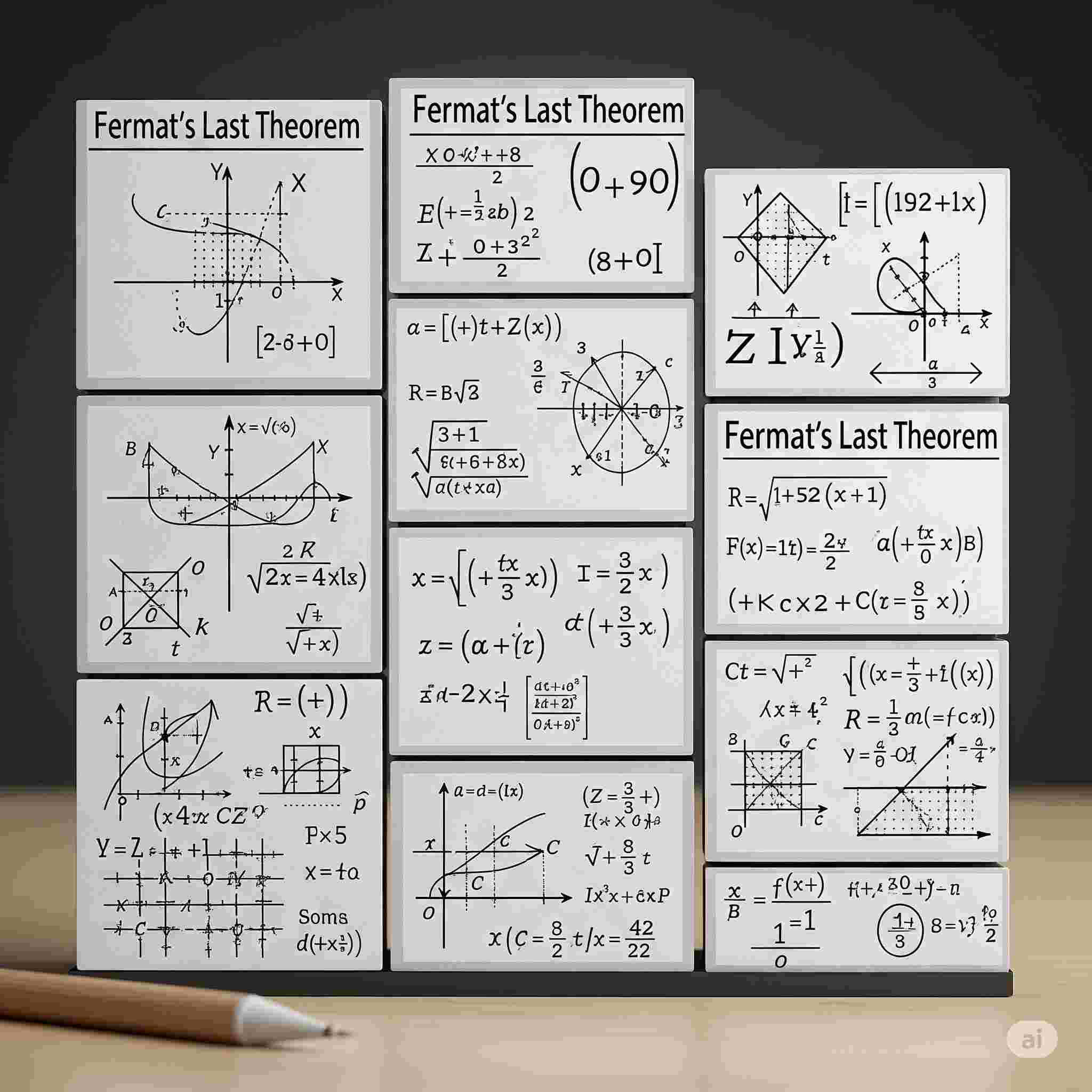Dr. Tom Beatty
Professor, Department of Mathematics
Florida Gulf Coast University
 |
Dr. Thomas Beatty is a Professor in the Department of Mathematics at Florida Gulf Coast University, where he has been a valued member of the faculty for 26 years. He teaches both undergraduate and graduate courses in areas such as real analysis, algebra, and mathematical problem-solving. As a founding member of FGCU’s Master of Science in Applied Mathematics program, Dr. Beatty integrates analytical thinking and interdisciplinary problem-solving into his instruction. His research centers on the probabilistic behavior of polynomial reducibility over finite fields. He is currently completing a book on mathematical problem-solving, to be published by De Gruyter-Brill. In addition to his scholarly work, Dr. Beatty is actively involved in student enrichment activities, including organizing logic puzzle workshops designed especially for students interested in legal studies. |
Contributions to Mathematics Education and Research
|
Dr. Beatty is trained in functional analysis, he played a vital role in the department’s early development, teaching a wide variety of courses across the curriculum. He was also part of the founding group that established FGCU’s master’s program in mathematics, approved in 2010. In addition to his work in analysis and algebra at the graduate level, Dr. Beatty has explored research topics involving the probabilistic reducibility of polynomials over finite fields. He co-authored a book on LSAT logic puzzles and organized weekend lectures to support students preparing for law school. Currently, he is completing a book on mathematical problem-solving for De Gruyter-Brill. |
 |
Recent Research Highlights
Generalized Series of Bernoulli Type: Ancient Math, Modern Insights
|
This research explores a broad category of mathematical series, building on the earlier work of Jakob Bernoulli. The main goal is to understand and provide a clear way to calculate the sum of these series, especially those where numbers are raised to a power and then divided by an increasing power of another number (like to the power of , divided by to the power of ). Dr. Beatty addresses the fact that while a general way to solve these series exists, it hasn't been properly proven or given credit in mathematical writings. To fix this, the paper introduces a straightforward step-by-step method, called a recursion formula, for calculating these sums. This allows for easy computation of these series for various numerical conditions. The research also expands on Bernoulli's original findings and tackles other complex series that would otherwise be very difficult to sum. Ultimately, the paper provides a solid and reliable method for determining the sums of these generalized series. |
Factorization Patterns in \(\mathbb{F}_q~[ x ~]\) Unlocking Polynomial Secrets
|
This research delves into the fascinating world of polynomials over finite fields, which are number systems with a fixed, finite quantity of elements. The central objective is to understand and quantify the various ways these polynomials can be broken down into simpler, irreducible (unfactorable) components. By establishing a systematic way to categorize these factorizations into "templates" based on the degrees of their irreducible factors, the researchers have developed methods to calculate the exact number of polynomials that conform to each template. This allows for the precise determination of the probability that a randomly chosen polynomial of a certain degree will exhibit a specific factorization pattern, including the likelihood of it being completely irreducible or completely splitting into linear factors. |
Small Modular Solutions to Fermat's Last Theorem: A New Twist on a Classic
|
This research addresses the existence of "modular Fermat equations" of the form \(x^n+y^n=z^n (mod ~p)\), a topic that diverges from Fermat's Last Theorem by operating within finite number systems. While previous work established that such solutions exist for any exponent and sufficiently large prime moduli , these proofs were non-constructive, offering no clear path to finding specific solutions for smaller primes. This paper successfully develops and presents a straightforward, constructive method for identifying and generating solutions for a significant class of these congruences. This method hinges on a "compatibility criterion" between the exponent and the prime modulus , ensuring a bijective relationship when numbers are raised to the -th power modulo , which in turn guarantees the existence of solutions through a direct matching strategy. The research also explores scenarios where this bijectivity breaks down, influencing the existence and nature of solutions. |




